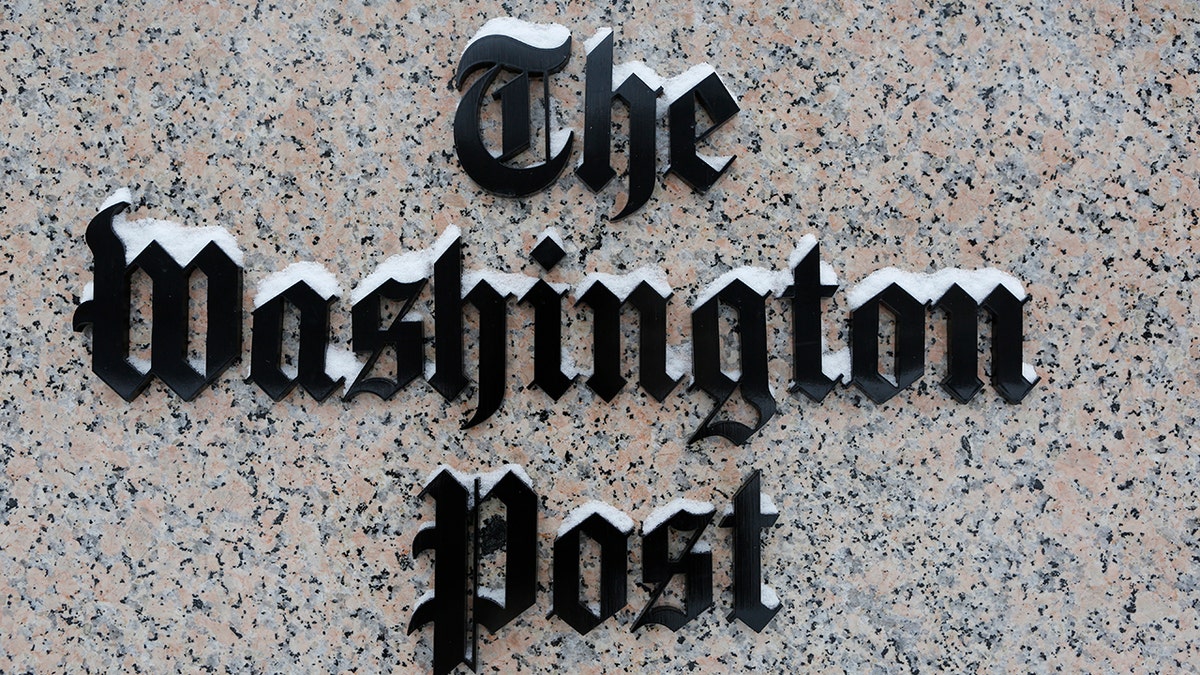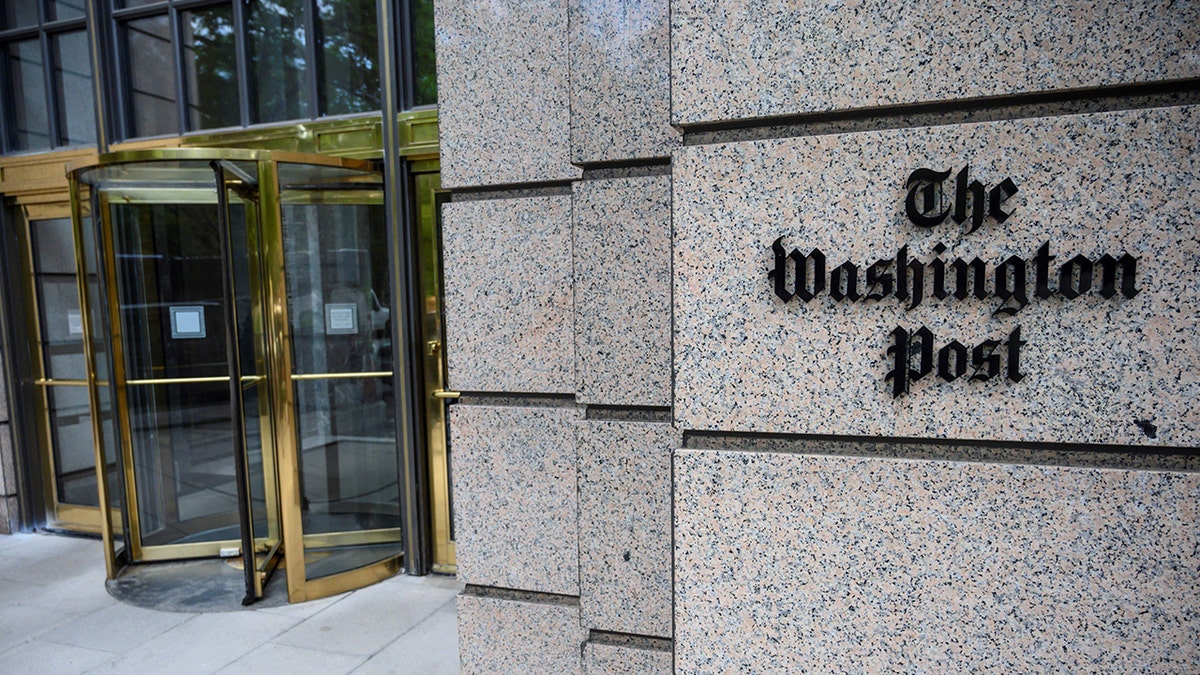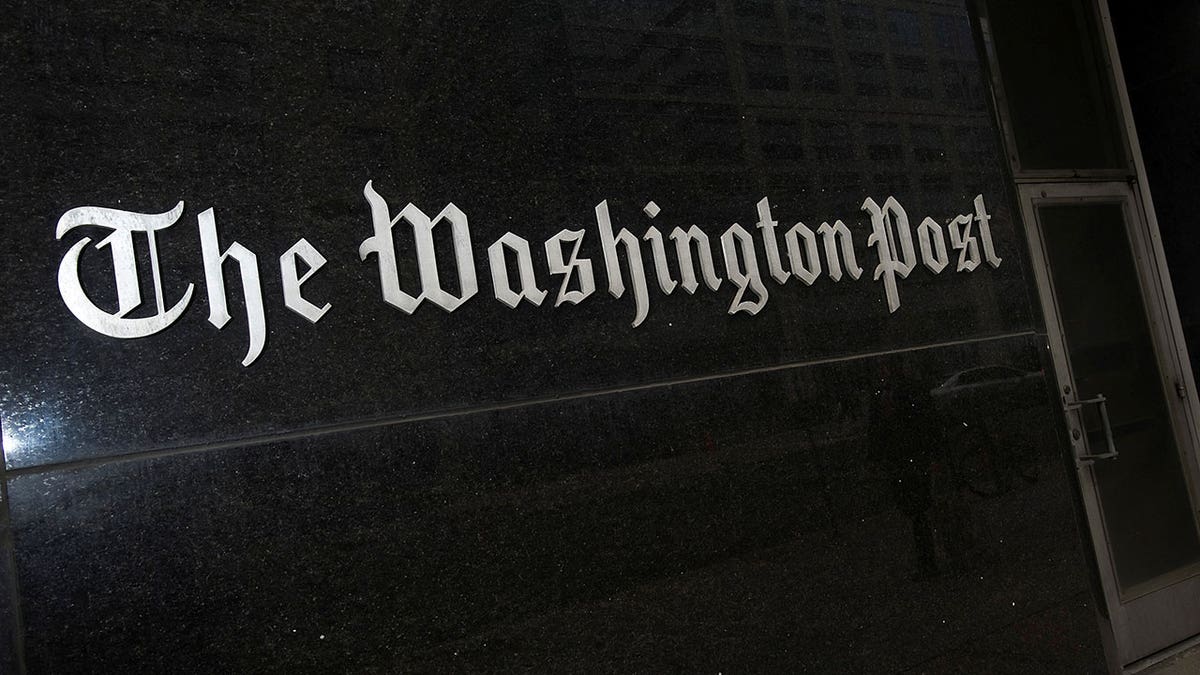Many social media users considered an analysis from the Washington Post on Monday that revealed Russian trolls didn’t sway the 2016 election to be six years too late.
Cybersecurity 202 newsletter author Tim Starks commented on a new study from the New York University Center for Social Media and Politics that revealed Russian operatives on Twitter likely did not influence voters during the 2016 presidential election despite concerns over foreign influence.
"Russian influence operations on Twitter in the 2016 presidential election reached relatively few users, most of whom were highly partisan Republicans, and the Russian accounts had no measurable impact in changing minds or influencing voter behavior, according to a study out this morning," Sparks wrote.
Twitter users quickly blasted the report for admitting that yet another Russia conspiracy theory was false only years after former President Trump left office.

Washington Post logo outside of the building covered with snow. (Oliver Contreras/For The Washington Post via Getty Images)
WASHINGTON POST SLAMMED FOR ‘NORMALIZING,’ ‘MINIMIZING’ PEDOPHILIA: ‘PART OF THE DEPRAVITY’
"You don't say. Russiagate was - and is - one of the most deranged and unhinged conspiracy theories in modern times. It wasn't spread by QAnon or 4Chan users but the vast majority of media corporations, ‘scholars,’ think tank frauds, and NYT/NBC's ‘disinformation units,’" journalist Glenn Greenwald wrote.
Substack writer Matt Taibbi tweeted, "How interesting that this is coming out now. Will the Washington Post address the countless stories they wrote hyping Russian influence on the 2016 race? The Pulitzer they won for such coverage?"
"After all the time, money, and headline space wasted on the Russian influence on the election, WaPo comes out with this detailed analysis on how it was all basically nothing — 6 years later," Townhall.com columnist Brad Slager wrote.

The Washington Post was one of many media outlets that promoted the "Russiagate" narrative. (Eric Baradat/AFP via Getty Images)
Washington Examiner correspondent Byron York commented, "Another thing for the purveyors of Russia madness from 2016 to 2019 to be embarrassed about."
Strategist Yossi Gestetener exclaimed, "Which sane person ever thought otherwise? Campaigns spend hundreds of millions on SM ads and loads more for staff to push content. A group of clowns would hardly make a dent. It was all a charade!"
"It kind of seems that Hillary and our media are running out of excuses for why she lost other than she was one of the worst candidates in modern history," The Spectator contributing editor Stephen Miller joked.
CHRIS RUFO SCORCHES THE WASHINGTON POST FOR ITS LATEST CRT ‘LIES,’ PAPER FORCED TO ISSUE CORRECTION
The Washington Post was one of many media outlets that promoted the "Russiagate" narrative, a belief that Russian operatives influenced the election results that led to Trump defeating Democratic presidential candidate Hillary Clinton. In addition, the Washington Post even won a Pulitzer Prize in 2018 for its coverage of alleged collusion between the Trump campaign and Russia.

The Washington Post was forced to correct several articles on the Steele dossier. (Reuters/Jonathan Ernst/File Photo)
CLICK HERE TO GET THE FOX NEWS APP
However, by 2021, the anti-Trump Steele dossier that was used as the basis for this collusion was roundly discredited. While the Pulitzer Prize Board stood by its awards from 2018, the Washington Post corrected and altered two of its articles on the investigation while adding editor’s notes to at least 14 other reports.

